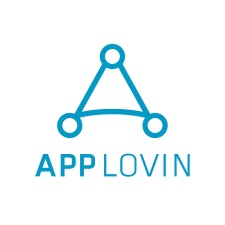Following the announced merger of ironSource and Unity, AppLovin jumped in with an unsolicited acquisition offer for Unity. Although the offer has been unanimously rejected by Unity’s board of directors, we wrote earlier this week that AppLovin are in a position to up their offer should they decide to.
We have received numerous comments from the financial sector regarding the situation.
On August 14th, Citi said that planned ironSource merger was the preferential option for Unity shareholders.
"When we blend the two [assessment methods]—engine ownership dilution, synergies and the premium AppLovin is offering Unity shareholders—we continue to believe Unity shareholders should prefer the ironSource transaction," the source states.
"We believe the ironSource transaction results in lower dilution in Unity’s game engine (since Unity will be issuing fewer shares to acquire ironSource relative to AppLovin’s potential share issuance to acquire Unity).” [Worth noting that the game engine is key to diving U’s premium multiple. If APP were to acquire U, the game engine piece of the business would fall from about 50% to only 13%, dwarfing the company’s most valued asset for its multiple]."
Wedbush agreed with this sentiment, diving into the comparable stock prices of the three companies. They explained that offer became more unappealing to Unity shareholders – and unlikely to succeed – even before it was rejected, as AppLovin’s stock fell 9.5 per cent while Unity and ironSource both saw their value increase.
"On the date prior to the AppLovin announcement, Unity shares closed at $49.76 per share. By the end of last week, they had climbed to $58.47, reflecting a roughly 17.5% increase in value. Over the same time period, AppLovin shares dropped from $40.14 to $36.32, reflecting a roughly 9.5% drop in value. As such, AppLovin’s proposed terms became even more unappealing relatively quickly in our view."
"At a high level, AppLovin’s proposed deal structure penalized Unity shareholders for appreciation in the value of Unity stock, with roughly 55% ownership and roughly 49% voting rights seeming more unrealistic as Unity shares appreciated and AppLovin shares dropped in value. In contrast, the proposed ironSource deal structure created winners for Unity and ironSource as their share prices increased."
Following the rejection of AppLovin’s acquisition offer, Keybanc conceded that while the company increasing its offer is possible, it remains an outside possibility.
"After a relatively chaotic week, it seems we may have an end to the U/IS/APP saga” [as a result of the Unity Board unanimously rejecting the APP proposal]."
"Given the verbiage that the APP deal didn't meet the "Superior Proposal" definition, we suppose it's possible APP could come back to the table with another offer near term, but we think the message that would send and potential further dilution required make that unlikely."
BTIG also thinks that a further offer is a possibility, however reiterates that it’s unlikely that a deal could be made due to the different interests of AppLovin and Unity.
"We believe [Unity] is optimizing for the highest ownership percentage in Newco, due to a belief that long-term value creation will stem from the engine and packaging of a holistic, end-to-end suite of solutions (ex: engine, ads, mediation, UGS, and Sonic Publishing in some form) for gaming and non-gaming customers."
"For that reason, the AppLovin (APP, Buy, $53 PT) offer always seemed like a tough one to make work. Not because of asset quality, but because ownership splits were at odds with our view of the circumstances, plus Class C shares are a tough mechanism for increasing both ownership and economics, given the discount they would likely trade at vs. A shares with voting rights. On top of that, we learned last week that Unity wants to avoid 1P games ownership, and while that could be solved via spin/sale, it's nevertheless an incremental layer of friction."
"From here, it would not surprise us to see another AppLovin bid, but solving for all three variables (ownership %, voting control, and economic upside) will be tough even if APP or a partner commits significant cash to the deal. Plus, we believe Unity has already run a thorough and comprehensive process since they initially engaged with IS in Feb., and it seems unlikely to us that U wasn't in touch with APP over the last few months."
Last year, we listed both AppLovin and ironSource as two of the top 50 mobile game makers. We'll be unveiling this year's list in the coming weeks.






















